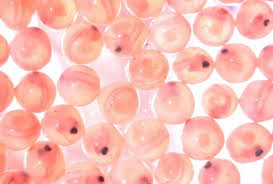"I'm deeply concerned about how the United States treats egg donors"
By Alison Motluk,
HeyReprotech!
| 08. 27. 2019
Support groups are meant to provide support. But sometimes you learn too much.
Ten years ago, if you were a woman who had donated eggs, there was a good chance you'd never met or spoken with anyone else who had done it. Sure, it felt exotic, but it could also feel isolating.
In the years after she donated eggs at a Toronto clinic in 2004, Claire Burns began to feel a need to connect with other egg donors. She contacted an infertility support group and suggested they start a chapter for egg donors. "Why would you need a support group?" she remembers being asked.
Why? Because there were a lot of thoughts and feelings to untangle, and ordinary people didn't always get it. In our first phone conversation, Burns told me she had been led to believe that she was just giving away something meaningless — like a piece of skin — but that now she was re-examining that. "It's my biological material. I am part of that family, even though I have to pretend I'm not," she said. "It's something I once thought I'd be able to dismiss. But it's haunting me."...
Related Articles
By Diaa Hadid and Shweta Desai, NPR | 01.29.2026
MUMBRA, India — The afternoon sun shines on the woman in a commuter-town café, highlighting her almond-shaped eyes and pale skin, a look often sought after by couples who need an egg to have a baby.
"I have good eggs,"...
By George Janes, BioNews | 01.12.2026
A heart attack patient has become the first person to be treated in a clinical trial of an experimental gene therapy, which aims to strengthen blood vessels after coronary bypass surgery.
Coronary artery bypass surgery is performed to treat...
By Staff, ScienceDaily | 01.05.2026
Scientists at UNSW Sydney have developed a new form of CRISPR technology that could make gene therapy safer while also resolving a decades-long debate about how genes are switched off. The research shows that small chemical markers attached to DNA
...
Following a long-standing CGS tradition, we present a selection of our favorite Biopolitical Times posts of the past year.
In 2025, we published up to four posts every month, written by 12 authors (staff, consultants and allies), some in collaboration and one simply credited to CGS.
These titles are presented in chronological order, except for three In Memoriam notices, which follow. Many more posts that are worth your time can be found in the archive. Scroll down and “VIEW...




